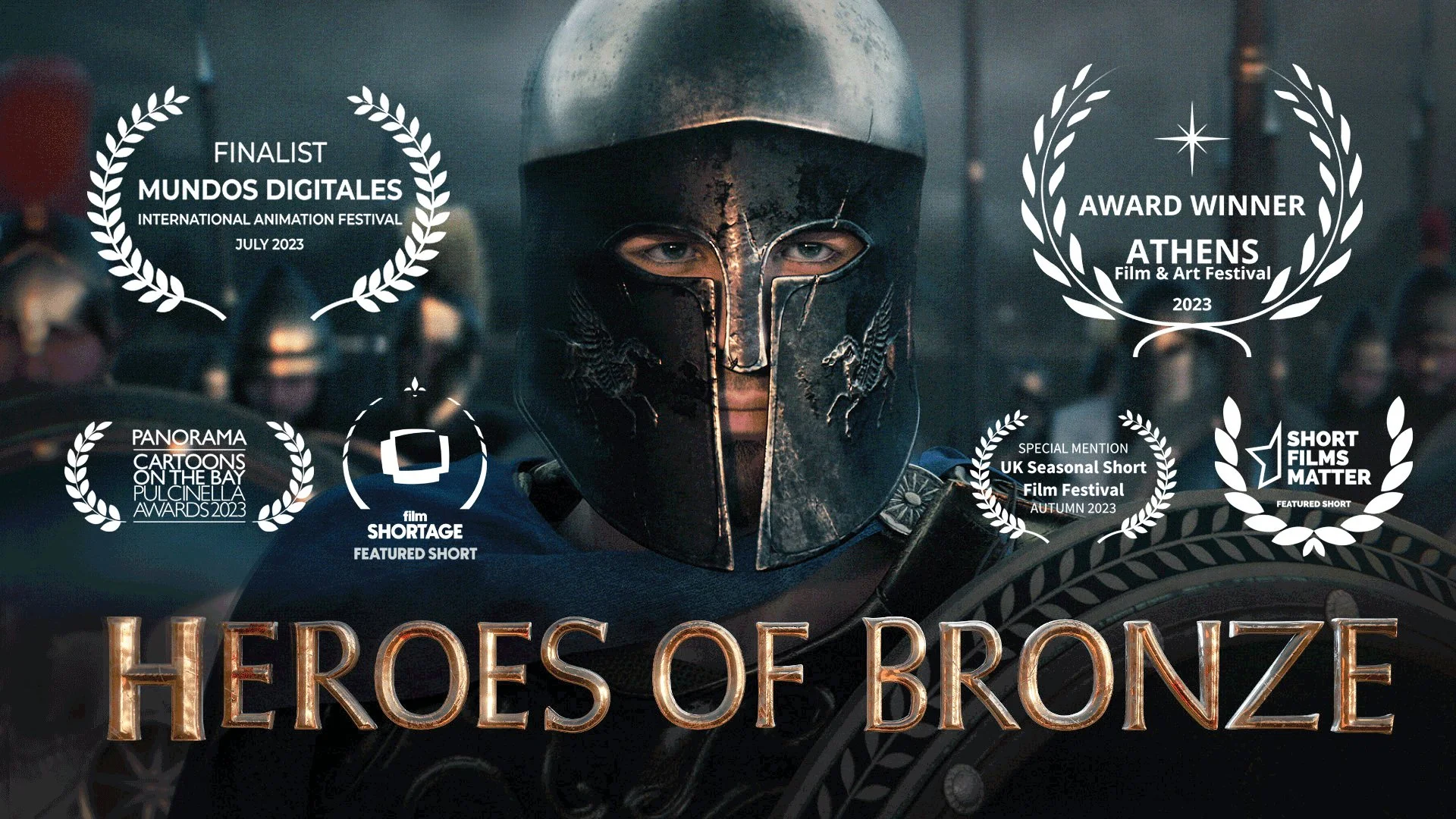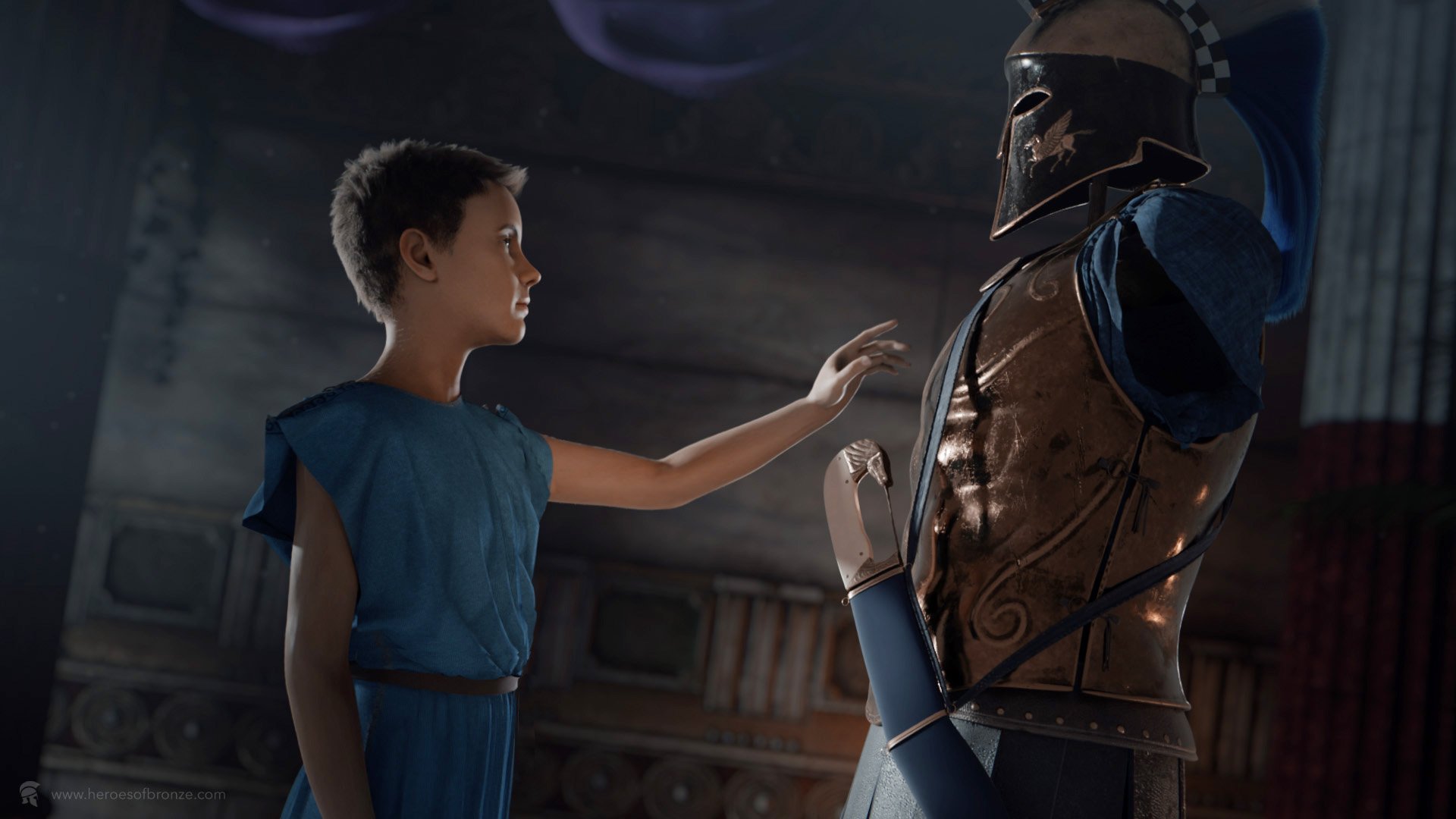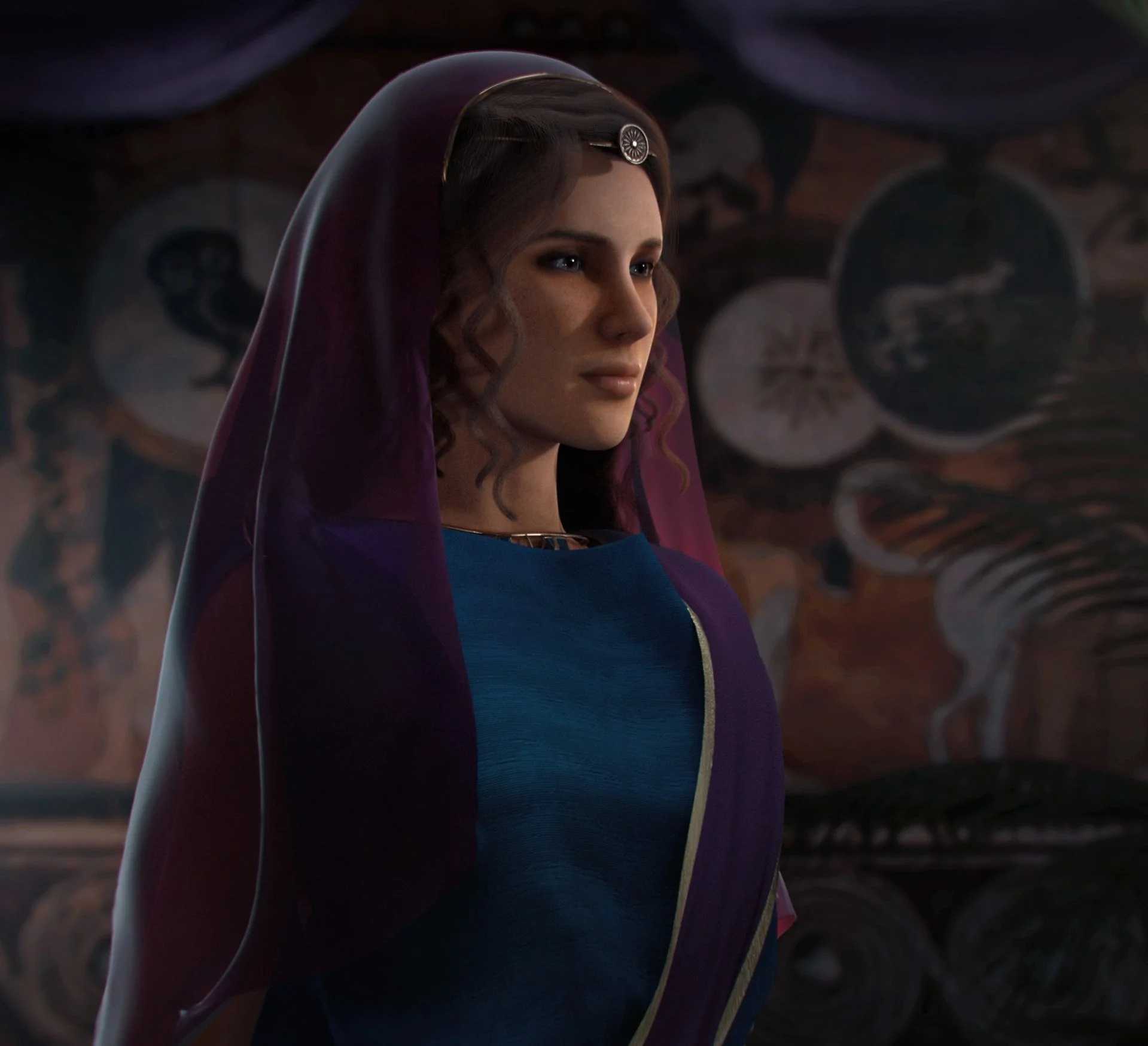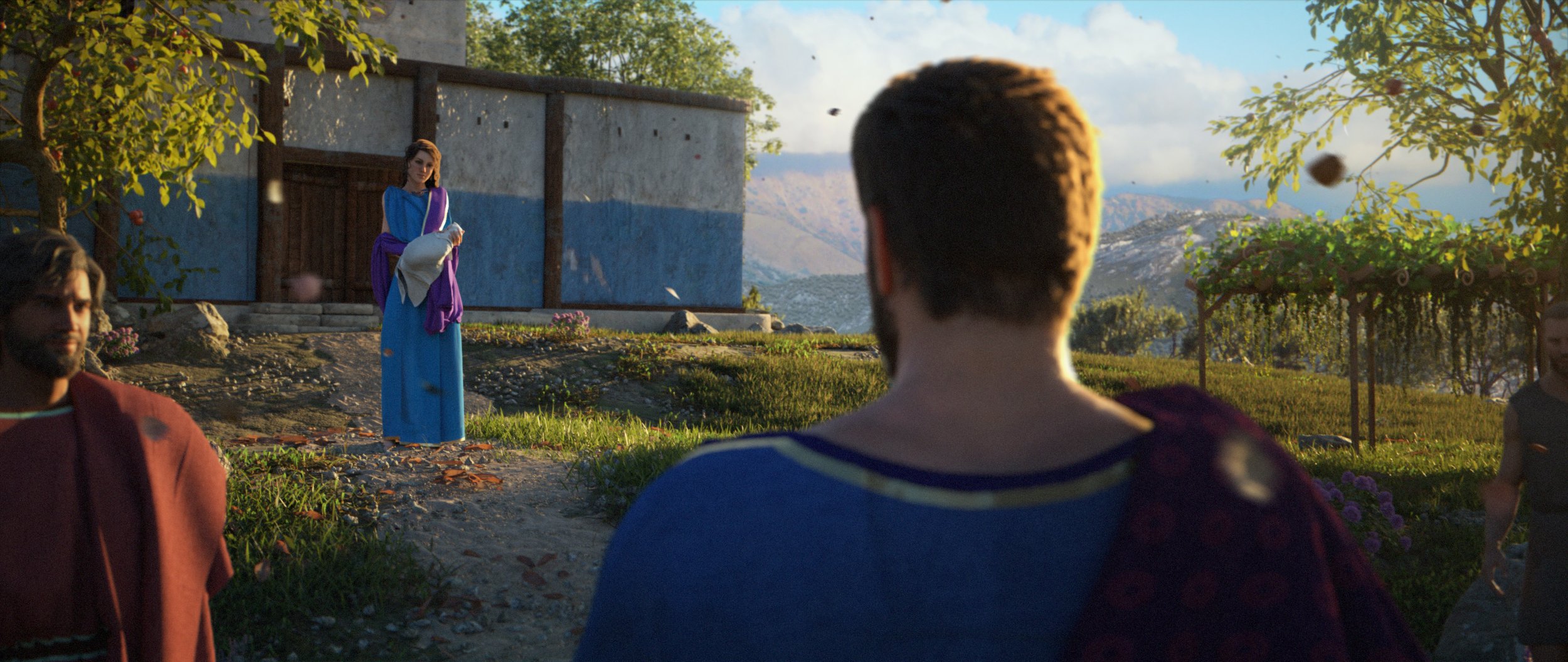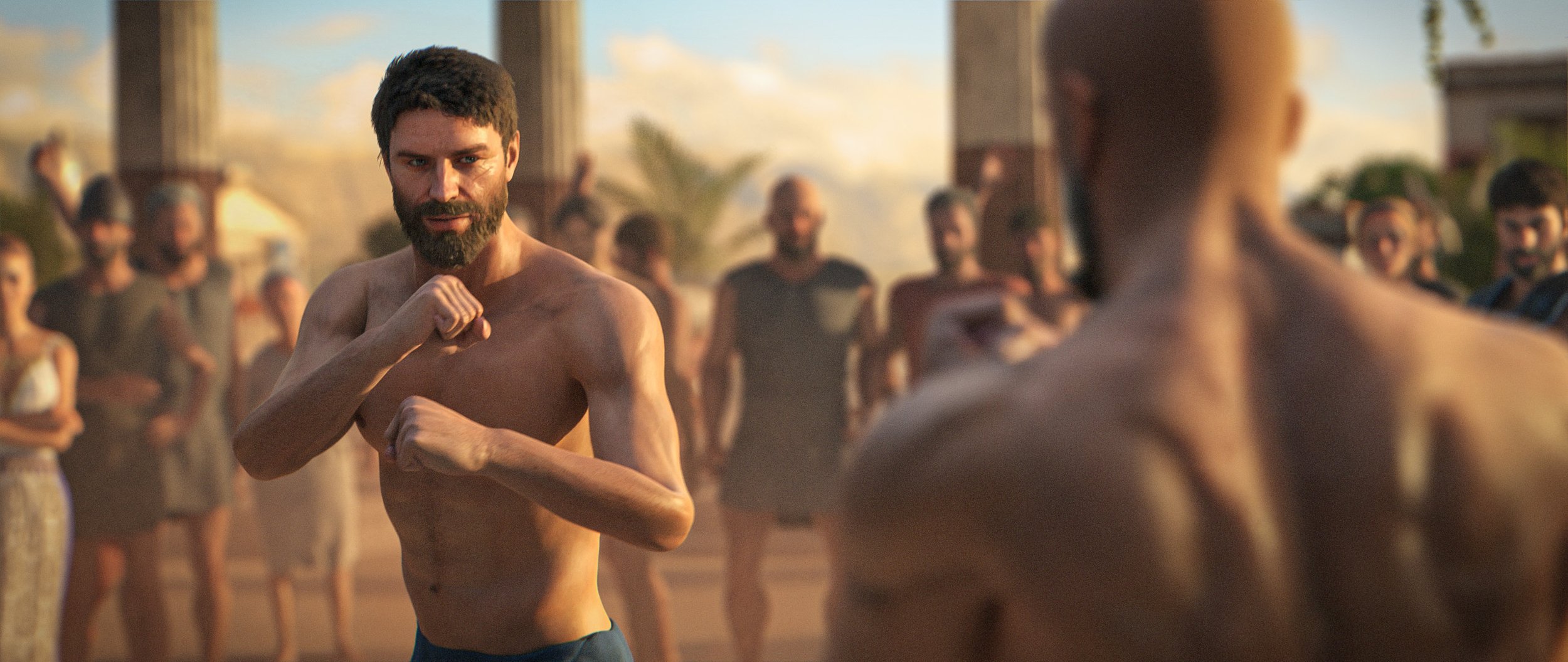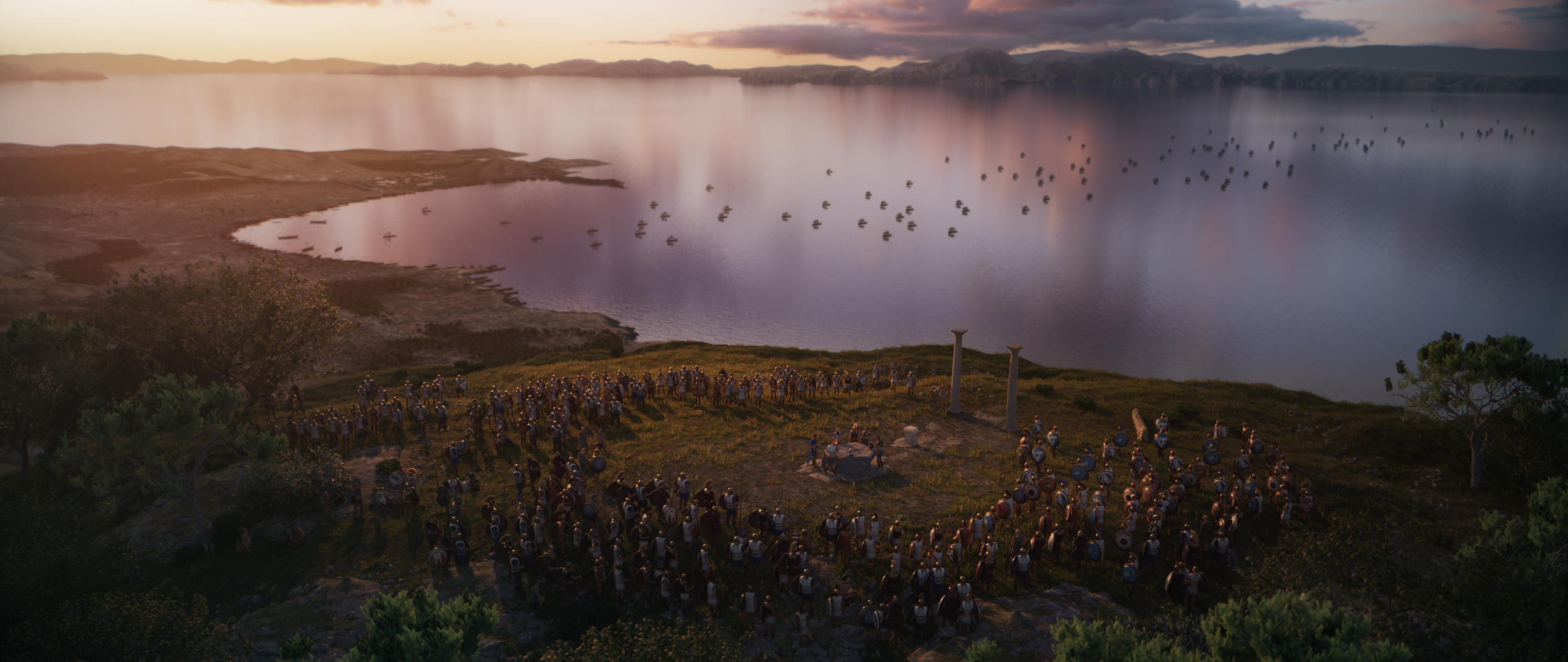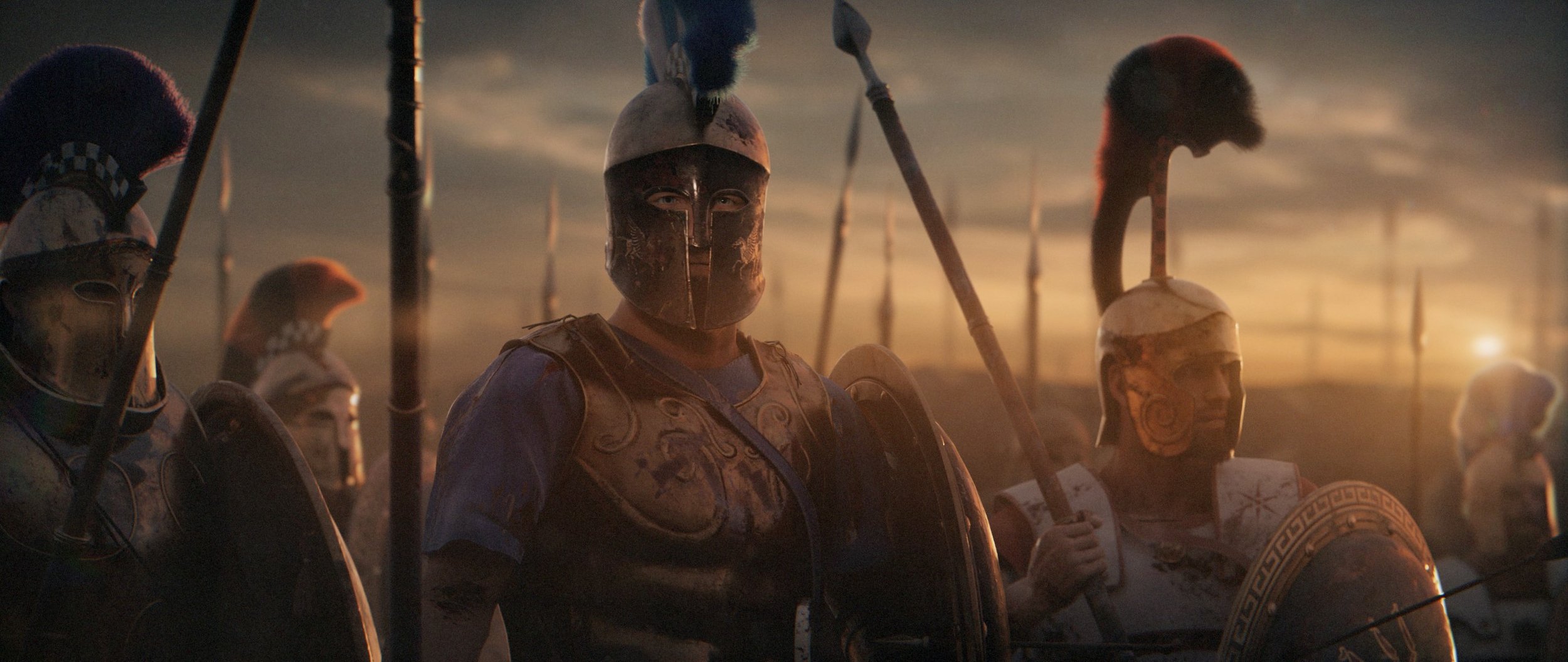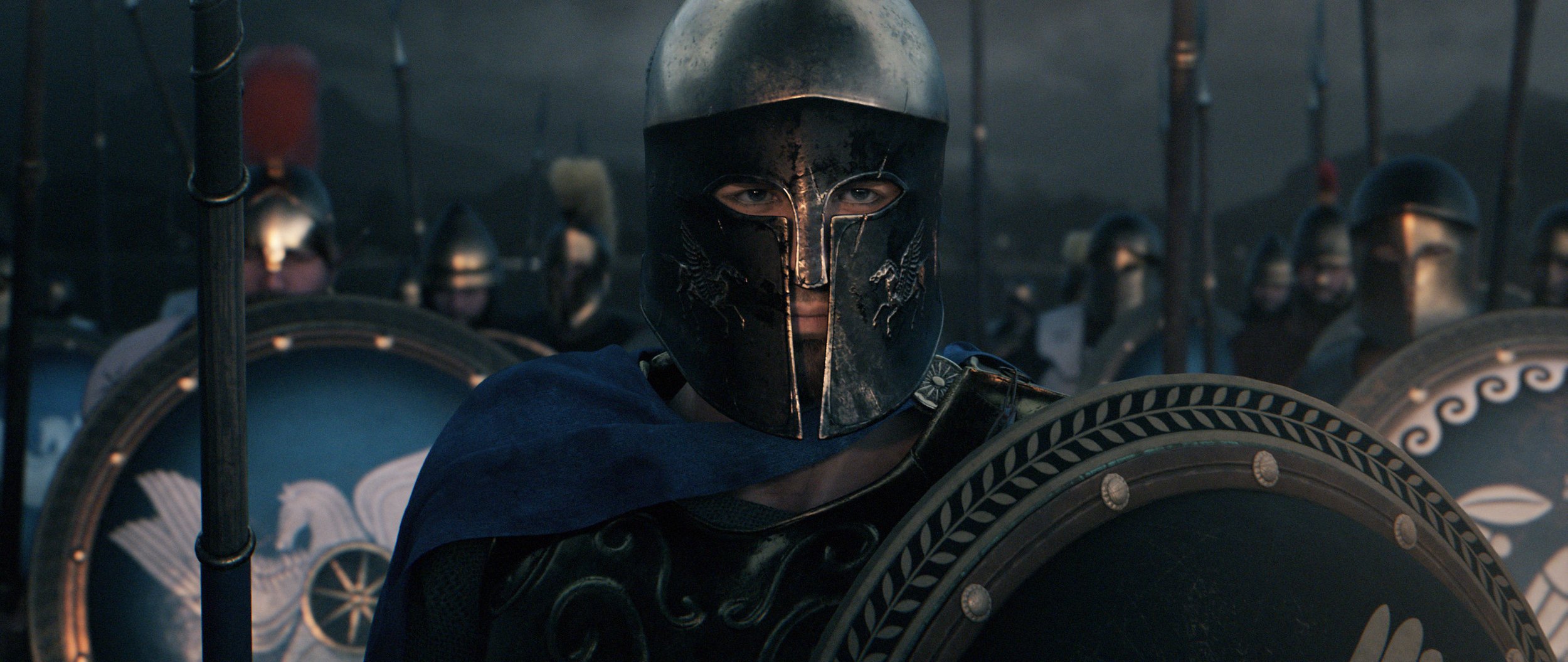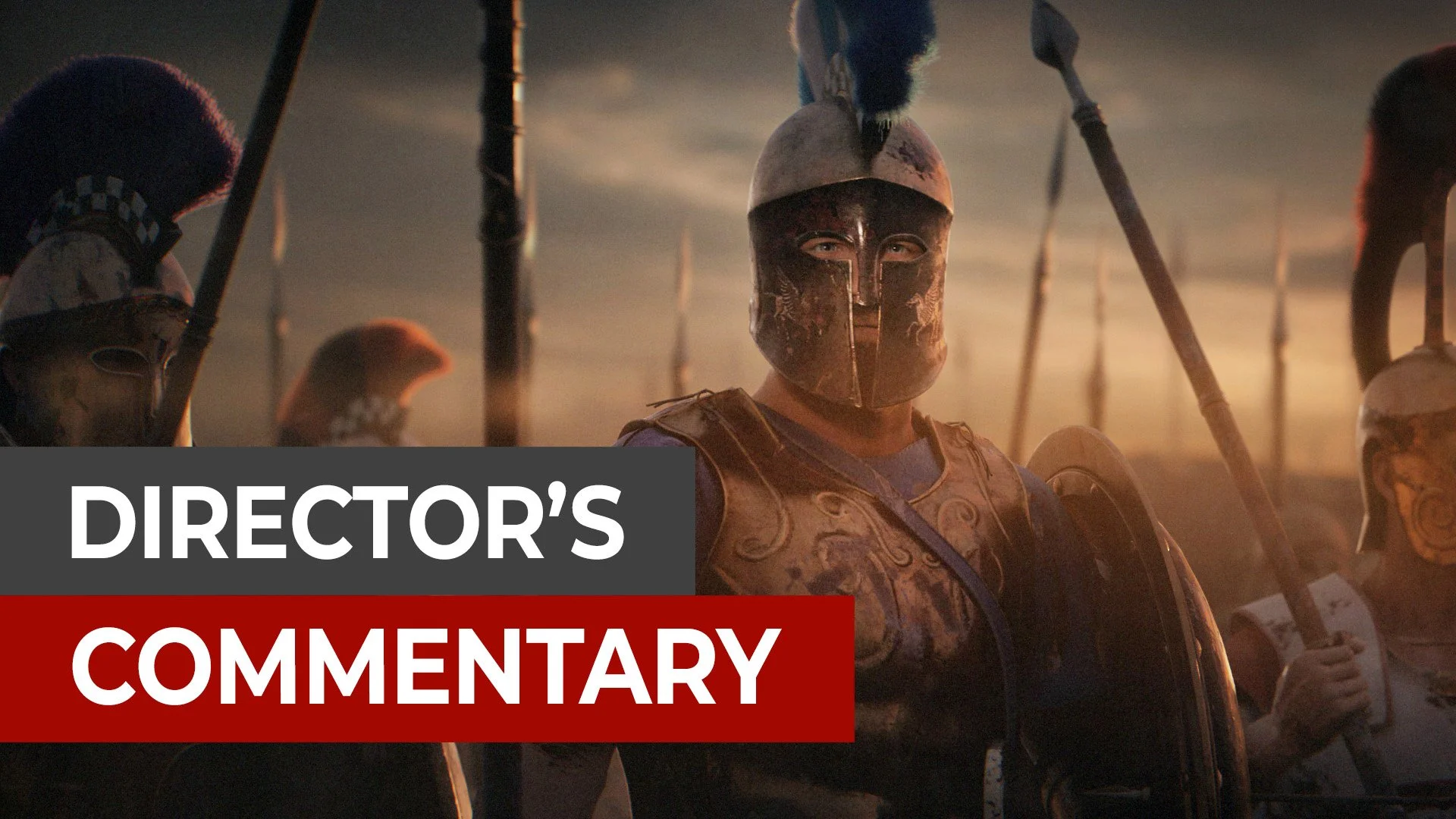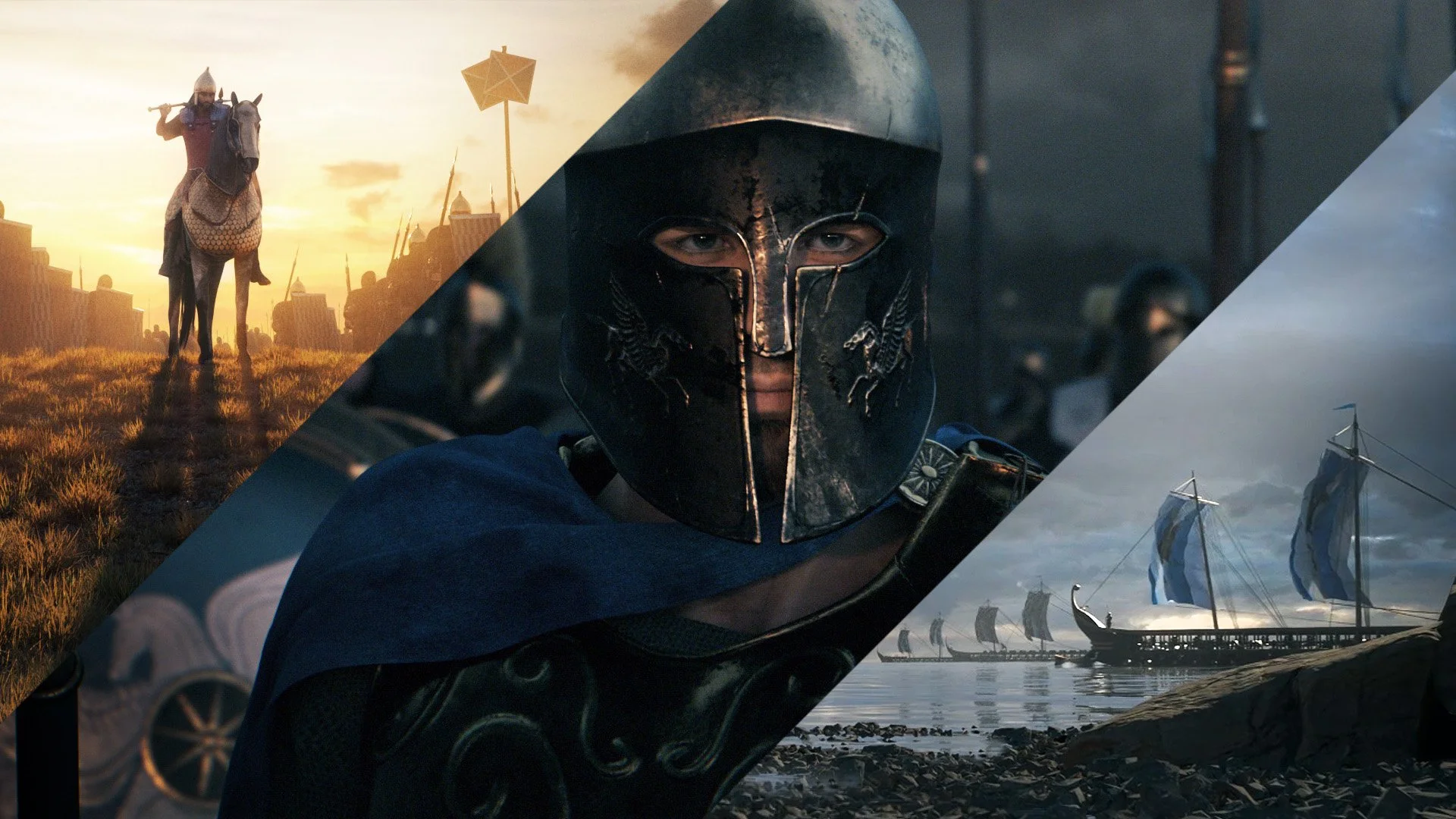

HISTORICAL INTRO
In 499 BC, the Ionian Greeks of Asia Minor rebelled against the growing might of the Persian Empire. In an act of defiance, their united armies, supported by troops from Athens and Eretria, marched on Sardis, the powerful center of Persian power in Asia Minor. They burnt it to the ground along with its temples.
The wrath of Darius the Great, the king of Persia, was swift and merciless. In 497 BC, he sent three expeditions against the Ionians, intent on crushing the rebels and restoring order. However, pacifying the Ionian Greeks wasn’t enough for the ‘King of Kings’. Soon, he turned his gaze to the West, across the Aegean Sea, where he found the proud city of Athens…

ALKAIOS
The year is 486 BC, four years after the Greek victory at Marathon. The united armies of Athens and Platea met the Persians, and against all odds, drove them back. The victory was complete, thousands of invaders left dead on the field of battle. Only a few hundred Athenian citizens lost their lives to the enemy. Among them, Nikephoros, an Athenian trierarch, who - side-by-side with his crew - tried to hold the center of the line.
Nikephoros’ son Alkaios never saw his father return from the battle. Only stories came back. Only memories of the man.
Now, each Metageitnion he keeps coming back, gazing at the armor of his fallen father. He remembers the men of Marathon, longing to become like them. The armor is still too big for him, the kopis and aspis still too heavy. Yet he keeps training. Each year, he gets taller and stronger. It is just a matter of time before he dons his father’s cuirass – and sets out on his own path.
Historical Note: Metageitnion was an Athenian month, roughly timing to the modern day August / September. The Battle of Marathon itself took place on the 10th of September 490 BC.
PENELOPE
It was never the easiest of relationships. Nikephoros had loved her, she could be sure of that. And yet, by his own will or that of others, he always chose to spend his days on his travels. His untamed nature was what drew her towards him - and what made her furious at the same time.
Over the years, grudgingly, she came to terms with his constant absence. She raised Alkaios on her own, and learned to manage their estate better than most men would.
It was around then that the war with the Persian Empire started. It took Nikephoros away from her once again. This time for good.
The irony was clear to her - it was his nature that killed him. And yet, without him being the way he was, they would all be dead as well. Without men like him, standing up to fight when the city was threatened, nothing would be the same.
Now, looking at her son, seeing him dream of becoming exactly the way his father was - she could almost hear the Furies laughing.
NIKEPHOROS
He never meant to disappoint them. But Penelope always knew his nature. He couldn’t change that… - he wouldn’t.
The sea beckoned to him, it never let him rest. Ever since he could remember, he gazed at the horizon, dreaming of becoming a trierarch and commanding his own ship. He was the opposite of his father, the settled, contented Anatolios. The family estate was too small a world for Nikephoros.
It was his connections in Ionia that brought him to war. Along with Miltiades, Aristides and others, they sailed the Aegean to join the rebellion against the Great King. The disastrous outcome of the campaign cured his adventurous spirit - but by then, the events were already in motion.
In Ionia, he saw first-hand the might of Persia. He knew that only a miracle would save them when the enemy landed on the beaches of Marathon…
Belonging to the rich class of the Leontis tribe, Nikephoros is a man of means. On his farms situated in the southern coastal area of Attika, he produces enough to rank among the wealthy hippeis class, the cavalrymen.
His main activities, however, take place at sea. Trading in everything from olives to amphorae, he and his crew oftentimes sail the Aegean. That brings them into direct contact with the Ionian Greeks (present day Turkey), as well as their Median and Persian overlords. He knows the area and the languages, counting many of the inhabitants of Ionia among his friends. For him, the events of the Greco-Persian conflict are all the more tragic due to this fact.
He can hold his own in a battle at sea, as well as on the land, and he brings into the fight a curious group of warriors that he has gathered over the years. Apart from that, he is a skilled pankrationist (hand-to-hand martial art), never missing out on a good competition, both in Attika and Ionia.
He is, nevertheless, not without his faults. Despite caring deeply for the ones closest to him, his hot-tempered nature sometimes takes the better of him, making him act recklessly, even resulting in the deaths of his followers.
The nature of his activities takes him away from home far too often, leaving his wife Penelope to care for their estate, as well as bring up their infant son Alkaios mostly on her own.
Despite that, he is loved by the ones around him, and respected by the powerful men of Athens - as well as Ionia and Persia.
He is a fictional character. His name means "Bringer of victory" in Greek.

RETURNING HOME, 500 BC
She stood there, proud, upright… beautiful. There was an impenetrable expression on her face. A thought came to him: That’s probably how Odysseus must have felt, seeing his wife after his return… He himself wasn’t gone nearly as long as the hero… still, it seemed similar.
His gaze shifted to the blanket in her arms. For a moment he was stunned, unable to react. No matter how many times he imagined that moment, nothing could really prepare him for it. Then, finally, a warm smile spread across his face.
"And this must be..."
"Alkaios," replied Penelope. It seemed that tears were involuntarily making their way into her eyes. Then, with a hint of accusation in her voice, she added: "Our son."
She raised the little boy, who was now wide-awake and cooing, and shifted him in her arms. His round, pink face appeared among the folds of the blanket.
"The message reached me across the sea..." said Nikephoros as he hurried towards them across the courtyard. "But... I think I can only believe it now, when-"
A slap hit him across the face.
“That was for the delay,” said his wife, eyes blazing. Then, as quickly as a summer storm, the expression faded and a mischievous smile appeared. “And this is to welcome you back.” She leaned in and kissed him.
He blinked, too overcome by conflicting emotions to say anything. Her beautiful scent overwhelmed him for a moment. Then he simply exhaled and nodded. Women - he remembered Philippos’ words - what would we do without them. The thought brought a wide smile to his face.
"Alkaios - this is your father,” said Penelope and uncovered the baby a little. Nikephoros leaned towards him. Slowly, carefully, he touched the boy’s tiny fingers.
"Hello, little warrior," he said, gazing at him in wonder. Then, he brought Penelope closer and kissed her gently on the forehead. "It's so good to see you again. Both of you."
“It is,” she nodded sternly, but the anger was already gone from her eyes.
They shared a long moment like that, just standing there, watching their son.

PYRRHICHE
An energetic tune of aulos carried on the wind, reverberating loud and clear above the heads of the people gathered in the gymnasion. A small group of men was practising pyrrhiche to its tune.
Nikephoros in the front, Hermogenes on his left and Aegeus on the other side. Clad in their crested helmets, spears stabbing in the air, shields bashing and whirling. They stepped back and forth, flowing across the sand, whirling dust in the air.
The hoplite dance was full of elegant jumps and dashes, imaginary attacks and defences, all to the tempo of the cheerful music. There were only three of them, but at the sight of their unison and speed, athletes and soldiers alike stopped to admire them.
With a great battle cry and shields coming together with a clash, the dance had ended. For a few moments, they stood there like statues of gods.
Then, laughter erupted among them. Their poses relaxed, the formation disbanded and they all set their spears into the ground, slaves rushing in to pick up their gear.
Historical Note: Pyrrhiche was a widespread ancient weapon dance, practised mainly with shield and spear, simulating the movements one had to learn for an actual battle. It was danced to the tune of aulos, a typical Greek flute instrument.
HOPLITODROMOS
The crowd went wild. Even over the noise of the shouting, Nikephoros could hear the painful cries of the athlete, who had tripped and now was writhing on the ground. It seemed his leg was probably broken. The others were trying desperately to avoid him and not end up on the ground themselves.
Nikephoros cared for none of that. He finally made the turn, and then his feet hammered the sand. He exploded forward with all the speed he could muster, ignoring the pain, ignoring the breathing on his neck. He shot straight, right around the group, and while they were just speeding up, he was already at his fastest.
He took the lead easily - and without further incident, he finished first.
“Well done, my friend,” sounded a deep voice from behind him. “Your gamble paid off.”
Nikephoros turned and found the large Milesian staring at him, somehow managing to look only slightly out of breath. He had a heavy Corithian helmet on and a sturdy aspis in his left hand, adorned with a red octopus. There was an amused, friendly smile on his face.
“I was lucky,” grinned Nikephoros, and then leaned forward, letting out a deep breath.
The giant eyed him for a bit, and then he extended a hand: “I am Philippos.”
“Nikephoros. Pleasure to meet you.”
They clasped their heavily calloused hands, nodding at each other - two competitors, offering a gesture of friendship, even though they both knew they would be back at it in no time.
Director’s Note: This competition does not depict any particular place, though I took a fair bit of inspiration from the Olympia site as well as the Corinthian site, where the Isthmian games took place. Mostly, I wanted to depict the various disciplines of such ancient Greek competitions, including the armoured run - the Hoplitodromos.
In the later periods, the athletes competed naked. Around 500 BC, though, it is possible they wore loin cloths. As an artistic decision, I decided to depict the competitors using the loincloths in Heroes of Bronze.
Historical Note: The victor of the games would sometimes receive an olive laurel, a sizeable amount of olive oil (a commodity of great value) or some other valuable prize, and would forever be remembered as a champion of that particular event. At the Olympic Games, the whole of Greece would know about these individuals, even naming specific years based on their victories. For example, the year 490 BC when the Battle of Marathon took place, would be called “the third year of the Olympiad in which Tisikrates of Kroton won the stadion for the second time”.
Director’s Note: There is no Nikephoros stated in the surviving list of Olympic victors, that’s why I was very vague in these scenes about where in particular they take place…

TRIREMES
They were coming in fast, at a slight angle - it almost seemed that they would ram the enemy ship.
The starboard side rowers retracted the oars inside the ship, while the port side men heaved with all their remaining strength. In a magnificent arc, the trireme slowly turned, burst through the remaining waves and passed the red ship side to side, shearing its oars.
Splintering wood. Painful cries from below the enemy deck. Chaotic shouts of the enemy trierarch and his marines - and then, a loud battle cry of the Persephone’s marines.
They jumped the gap between the ships in unison. It took Nikephoros a moment to get his footing. Just in time to block an arrow flying at him from one of the archers. His aspis took the impact - and he was off, hoping his marines would follow. Furiously, he charged the closest enemy.
He hit him with the full weight of his shield, so hard that the man was launched backwards. With a surprised yelp, he disappeared below the deck, among the frightened rowers. Nikephoros turned immediately, prepared to strike down the second marine coming at him, but in that moment, a black feathered arrow belonging to one of his own archers hit the man in the neck. The foe fell on the deck, dead in an instant.
“Hold together!” shouted Nikephoros, seeing his own marines in peril…
Historical Note: This incident depicts one of the many trireme skirmishes that could’ve happened during the chaotic years after the beginning of the Ionian revolt. Alliances were always shifting and frequently, Greeks fought against Greeks, alongside Phoenician crews. That’s why you can see a mix of Greek and Eastern gear on both triremes.

THE POLEMARCHS
'So, this is what it has come down to...' Themistocles thought bitterly, glancing sideways at his rivals. 'An old tyrant and an aristocratic prig. Oh… and of course, half a dozen other bickering men. As if this wasn't enough of a mess already...'
They had gathered in front of the crowd, to be announced as three more strategoi for the inevitable campaign against Darius. At any other time, he might have rejoiced. He was elected for the Leontis tribe, a great honour indeed. The cheering of the masses would have given him a sense of pride.
Not now. Too much was at stake. The whole future of Athen’s democracy - which was the only thing keeping him, a lowborn, in power - depended on the next few decisions, on the performance of the ten elected generals and their unity of action.
Which was, of course, a completely insane idea. Ten political rivals cannot organise a mess hall, let alone a battle plan.
He watched them warily, how they gleamed in their magnificent battle garments, savouring the moment. To his left, Aristides the Just. A man who always told the truth... no matter how much damage he would cause, no matter how many people had to die for it. Further left, Miltiades, until recently a tyrant and a servant of Darius in Thrace, now turned pirate against the Empire. Not a man to trust with an army of Greeks.
'What a great company this is...' he smirked. 'What a group of heroes.'
From the left: Themistocles, the architect of the Athenian naval victory, Aristagoras, an important general and aristocratic politician, and Miltiades, the victorious general from the Battle of Marathon.
Director’s Note: We know all the names of the generals at Marathon, and Nikephoros, being a fictional character, of course wasn’t among them. Still, I really wanted to place him in this shot, among other famous men of his time.
SUSA
By the middle of the 6th century BC, the ancient city of Susa had come under the rule of the Persians, whose powerful Achaemenid dynasty rapidly conquered a vast territory. Darius the Great recognized the importance of the city, and its administrative role in the region, and made it his lowland capital. Once again, Susa became a vital, cosmopolitan city and a centre of interchange between peoples of the Mesopotamian plain and the Iranian highlands.
Like a mirage, the Persian city of Susa glimmered in the scorching sun. Surrounded by mountains on one side and desert on the other, it stood defiant to nature, large and proud, shining with riches.
At the court's majestic door, lines of petitioners and courtiers were waiting. That day, however, the entrance was barred. A private audience was in session.
On the throne, Darius the Great, the king of Persia, sat surrounded by Immortal guardsmen and a group of his closest advisors. An ornate golden tiara was placed on his head, and he himself was wrapped in a brightly coloured robe. In his right hand, a golden sceptre.
Giant pillars towered all around him, supporting the immense ceiling of the apadana hall. Curtains and carpets, rich fabric and embroidered satin all. Behind each pillar, more advisors and ministers were standing at the ready.
“I am convinced that the moment has come, my king,” said a tall man in front of Darius and bowed deeply, “Thrace and Macedonia are secure. Sparta is in turmoil, and Aegina stands against Athens. I have fought the Greeks, your majesty. I know them… and I know that if we attack now, when they’re divided, they will splinter and fold. Like they do every time.”
The King of Kings frowned, pondering the words of his general. He squeezed the sceptre, the symbol of his power. And then, finally, he reached a decision.
“Very well,” he said and sighed softly. Then, slowly rising from his throne, he raised his voice: “By the power entrusted to me by the almighty Ahura Mazda - I command you, Datis. Lead our forces. Punish Athens and Eretria for their transgressions. Crush their army, burn their temples. Never again shall the Greeks dare to rise against us.”

THE BAY OF MARATHON, 490 BC
They left the gates of Athens on the fifth day of Metageitnion, rushing east as fast as they could. They marched through the night, desperate to cut off the Persians from the main road to Athens. With a sigh of relief, at the first light of a new day, they arrived above the field of Marathon. There they found the mighty fleet of the enemy, still unloading the myriads of soldiers they brought to Attika.
The ten generals gathered to discuss a possible strategy, taking turns each day in commanding the army. That, however, resulted in a protracted stalemate, neither side willing to commit to a full-scale attack. The Persian army was blocked on the beach, but the Greeks were afraid to descend into the open fields and fight on a level ground.
There were furious arguments between the strategoi, even proposals of abandoning the fight. On the day of the battle, however, the overall leader Callimachus surrendered his leadership to Miltiades, whose battle plan - a mad charge into the enemy lines - led to the unexpected victory.
Director’s Note: There were 10 strategoi in total at Marathon, but for the scene above, I decided on just 4 of them (+ Nikephoros) being present in the scene. Less crowded that way.
Together, they ran across the fields of Marathon, charging the enemy before the archers could unleash their deadly salvos. They clashed in melee, dealing terrible damage to the lightly armoured Median and Sakai troops. But the invaders were tough and courageous, and they did not give ground easily.
The fighting was the heaviest in the centre of the line. It was there where the Leontis tribe struggled to hold the masses of the enemy. It was there where Nikephoros fell, struck down by the charge of the mighty Persian cavalry. At its front, delivering the mortal blow - none other than Arynam, a former friend of his.
Despite the losses, the others fought on and prevailed. They drove the invader back to their ships, and ultimately out of Greece.
Director’s Note: The presence (or rather, the absence) of the Persians’ mightiest weapon - its cavalry - at the fields of Marathon is a bit of a mystery. Some scholars say that on the day of battle, at least part of the army was loaded onto the ships and expected to dash towards Athens, to capture it before the Athenian army could return to the city.
Others claim that there was at least a limited number of cavalrymen present, and that their charge might have been the cause of the partial rout of the centre of the Greek line. I decided to go with the second theory, having a smaller-sized cavalry contingent charge the weak centre, where the Greek phalanx was the thinnest.

THE FIELDS OF PLATEA, 479 BC
The morning was chilly, yet Alkaios barely felt the cold. His heart was pumping. There was anticipation in the air, made even more palpable by the deep silence that settled among the men. This was it. The whole of Greece gathered here, on the fields of Platea, to meet the invader head on. Somehow, the quarrelling states put away their differences and united in a single effort to stop the enemy, once and for all. Even the Spartans were here.
A few moments earlier, the ground started to tremble. It was getting more intense now.
He felt the weight of the sword his father gave him, weighing it in his hand once again. The cuirass now fit him almost perfectly. The helmet slipped on like it was made for him. Slowly, Alkaios removed the bowl of the Pegasus shield from his shoulder. Then, he breathed in - and slipped on the helmet. Immediately, the sounds became dull, his vision limited. Despite that, he could hear the blowing of the horns, so many of them. After that, the growing roar of thousands of enemy feet.
They have rolled over the hill’s crest like a tidal wave, not even bothering to start sending their arrows. They went immediately for the attack. Thousands of men from myriads of nations, all charging down to bury the hated Greeks under the weight of their numbers.
Battlecries sounded. On his right, Aegeus let out a mighty scream. On his left, he could feel the hatred emanating from the old, bitter Philippos.
“This may finally be the day,” he could hear Philippos growl through his gritted teeth.
As one man, they connected shields. In that moment, his father’s voice came to him from what seemed like a distant past. One foot forward, Alkaios, the other one braced back. Shield on the shoulder and spear at the ready. Hold the cord of the man on your left and do not let go. Find your balance - and do not run. Never turn to run. The lives of everyone you know depend on it.
Director’s Note: I made another intentional error here - at the battle of Platea, the Athenians in fact faced the Theban phalanx, Greek warriors from the city state that joined the Persians. For the purpose of the shortfilm, I made them face a charging Persian band. It was the Spartan phalanx that carried the brunt of the Persian attack and that ultimately stopped their advance. It is widely accepted that the Spartans decided the battle for the Greeks.

Support the Project
Heroes of Bronze is a “proof-of-concept” CG short film. It servers as an introduction to the world and - hopefully - a precursor to a bigger project set in the same settings.
If you want to support the future of the project, you can buy my courses, make a one-time support payment or become a Patron.
